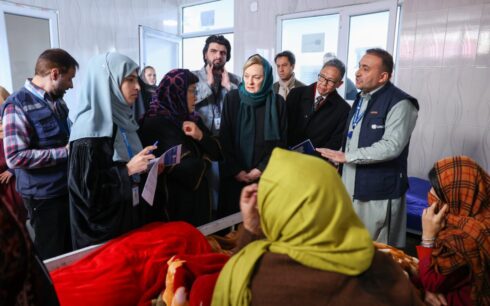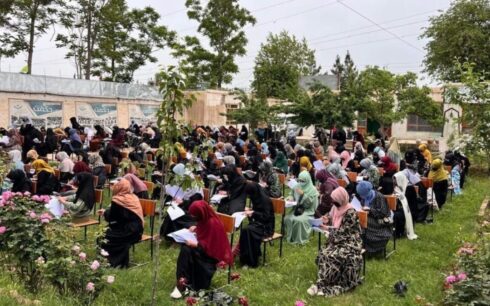KABUL, Afghanistan — Restrictions imposed by the Taliban on women in Afghanistan have reverberated across all sectors of their lives, the UN agency for women reported.
According to the report, the ban on girls’ education has led to a 25% increase in child marriages, a 45% rise in early childbearing, and a 50% spike in maternal mortality.
Before August 2021, Afghan women were excluded from 80% of peace negotiations, the report noted.
“The negotiations for the Doha agreement in 2020 excluded Afghan women and did not contain a single reference to or safeguard for women’s rights,” it stated. “Since August 2021, the Taliban have imposed over 50 restrictions, bans, and decrees regulating the lives and bodies of Afghan women and girls; none have been reversed to date.”
Despite these restrictions, Afghan women continue to fight for their right to live full lives, equal in dignity, the UN agency noted.
The report highlighted the challenges and demands of Afghan women, with 60% saying international recognition of the Taliban should only happen if all restrictions on the rights of women and girls are reversed.
Additionally, 81% of Afghan women had to skip a meal in the past two weeks, and 57% felt unsafe leaving the house without a mahram, or male guardian.
“In the past year, the decision-making power of Afghan women in their own homes decreased by 58%, and 82% consider their mental health to be bad,” the report added.
Afghan women described the intergenerational impact of the Taliban restrictions. Boys are internalizing the social and political subordination of their mothers and sisters, reinforcing the belief that women should remain in the home in a position of servitude, the report cited.
Referring to the international political dialogue on Afghanistan, the report stated that diversity in representation is foundational to the concept of inclusion for Afghan women. The perspectives and voices of women are deemed crucial for reaching lasting and inclusive solutions.
The report also emphasized the importance of transparency and accountability in the dialogue. Active involvement of citizens in the selection of representatives and decision-making processes are the two most common areas of concern flagged by Afghan women.
The report urged the international community to remain focused on the situation in Afghanistan and to restore women’s rights, including the rights to education and work, and women’s participation in public decision-making. Afghan women also called for their representation in international dialogues on Afghanistan.
Since taking over Afghanistan in August 2021, Taliban have imposed severe restrictions on women and girls, including bans on education and work.





